From the moment we are born, there will be people around us who will try to tell us what we should be doing, how we should be acting, and by what metrics we should be measuring our success. The influences of our families, societies, popular media, and a host of other sources try to inform us of what is “best”: best behavior, best performance, best goals, best cars, best social media platform, so on and so forth. With so much clamor from so many directions, the messages and influences that encourage us to validate ourselves, rather than seek validation from others, can easily get drowned out. It is one of the most subtly dangerous threats to our psyches that exist, and I cannot overstate how important it is to find our sovereignty within ourselves first and foremost.
There’s no universal set of rules or criteria that can be followed to achieve this. Our pasts, and our present, create a set of circumstances unique to every one of us. Regardless of where you’ve come from, where you are, or what you have or have not achieved so far, there is something that I can say I honestly believe is true for you as much as it is for me: you are worth believing in, and you can find that belief within yourself. I’ve dismissed that idea out of hand in the past, be it with a sincere if half-hearted “thank you” to whatever person was saying it, or acting in a sarcastic manner in reaction. Because of how I looked at myself, I neither saw nor internalized the truth of that statement. It was a denial of my best self. That is one of the biggest things that has changed about me, and that I’m dedicated to not losing sight of ever again.
Our best self comes out when we look within ourselves for our sense of validation. It isn’t easy. Those external sources, those structures of control, can be difficult to eject. Some of the influences, especially from parental figures and role models, dig themselves deeply into our psyches. And sometimes, they are directly detrimental to our self-actualization. Even when we can recognize them as toxic, if they have been a part of our lives for an extended period of time, the idea of being apart from them can be daunting. That challenge of making new choices I mentioned previously? This is where it’s at its most prominent, and where forging those new neural pathways can be its most rewarding and empowering.
As much as a lot of popular media is aimed at making one reach for an external sense of validation, be it financial success or reliance upon a relationship or some fleeting moment of fame or recognition, I’d like to cite three examples of stories in our popular culture that exemplify the challenges and empowerment of seeking and seizing validation from within oneself.
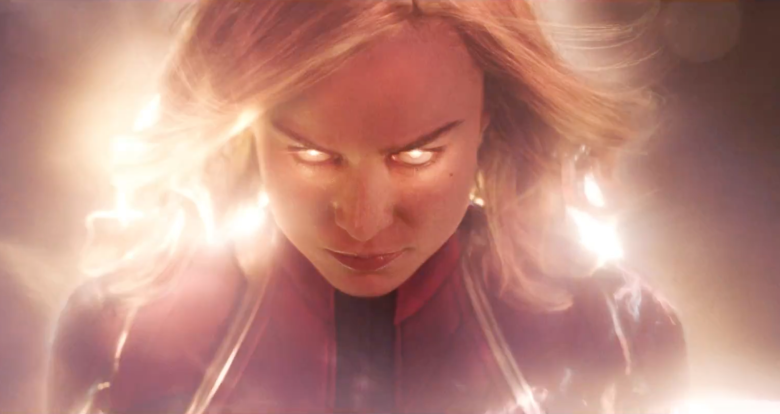
One of the best scenes in Captain Marvel is Carol’s last confrontation with the Kree Supreme Intelligence. For years, the Kree had been influencing Carol’s psyche with both direct and indirect manipulation; there was a device on her neck representing the direct control of the Supreme Intelligence, and her peers sought indirect control through exemplifying the Kree way of life. Even then, however, Carol didn’t quite fit in, wanting to be her own person. Returning to Earth showed Carol who she had been before the events that put her under Kree control. I love the scene where Carol’s best friend from her past, Maria, tells Carol who she is, or at least who Maria always saw her to be: “smart, and funny, and a huge pain in the ass… the most powerful person I knew, way before you could shoot fire from your fists.” Maria could see the person that Carol was, and wanted to help her see who she could be — to help Carol grow into her true self.
Carol resolved to forge her own identity, using both who she had been on Earth and what she’d learned from the Kree to become a new, better, stronger version of herself. She doesn’t want to go back to who she was before — she knows that’s impossible. And her identity as a Kree warrior, not to mention the entire Kree way of life, has shown itself to be a lie. She rejects the influence of the Supreme Intelligence; she physically removes the device (something else she’d been lied to about), and says:
“I’ve been fighting with one hand tied behind my back. What happens when I’m finally set free?”
What happens next is a direct manifestation of Carol Danvers as her best self. As Captain Marvel. And it came from within herself, from her own inner sense of validation.
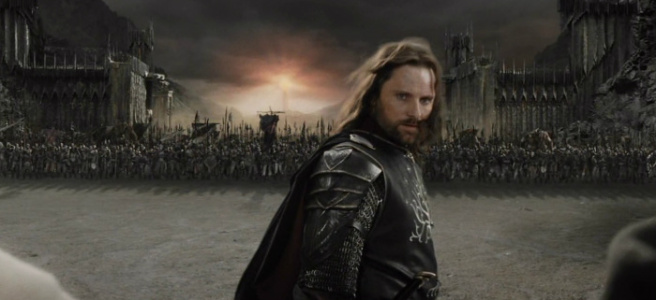
Aragorn, especially in the film adaptation of Lord of the Rings, is a man who is fearful of his legacy, the influences of his past. He knows that those who came before him failed, succumbed to their weaknesses and temptations, and he is afraid of doing the same, of not being equal to the task ahead of him. Because of the actions of others, he is inclined to invalidate himself. Even when actively encouraged by others, be they Gandalf or Arwen or Elrond, he secludes himself, more concerned with the possibility of failure than of success.
When he puts that fear aside, and makes the decision to use what has been given to him to its fullest potential, we see a change. He’s been able to lead in the past, when tracking Merry and Pippin or at Helm’s Deep. But when he rides out of Minis Tirith with an army behind him and has to inspire them to stand with him to give the world a chance at peace and freedom, it’s through his own inner sense of validation that he validates others. He knows he might fail, that it might all end in darkness and death. His belief that he can be better, that he chooses to be better, makes all the difference. It allows him to face his fear and, in turn, help those with him to overcome theirs. And that is why they prevail.
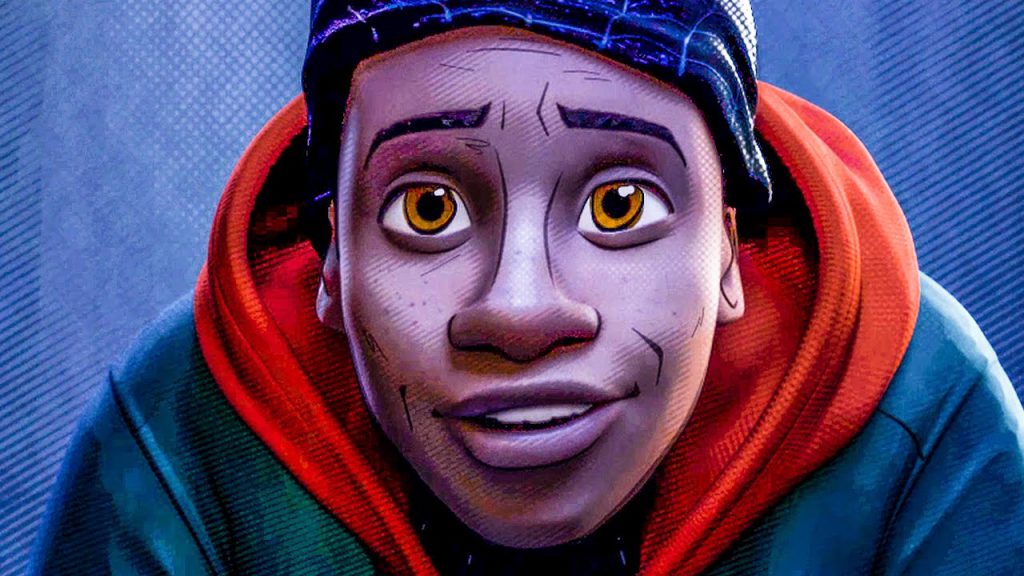
Miles Morales in Into the Spider-Verse has to find it within himself to “put on the mask”, to be Spider-Man. He’s in a situation where he knows his powers give him responsibility, and he aspires to be like the Spider-Man of his world — Peter Parker, now deceased. (Whups, spoilers.) The Peter Parker from another dimension, who’s come to care for Miles, tells the young man that he’s not ready, that he doesn’t quite have what it takes to tackle the major threat. This is a sentiment backed up by Gwen Stacy, Peni Parker, Spider-Man Noir, and Peter Porker. They all care about him and want him to be safe; they feel his inexperience makes the situation too dangerous. His father, coming to his door, tells him that he’s worth believing in. In the end, it’s Miles himself that helps him realize that he does, in fact, have what it takes to be the kind of person, the kind of hero, he wants to be.
Into the Spider-Verse immediately became my favorite Spider-Man film, and favorite Spider-Man story period, because of Miles Morales. I mean, yes, the art style is mind-blowing and the attention to detail is staggering; I adore the worn-out alternate universe Peter Parker, the incredibly confident and empowered Spider-Gwen, the uniqueness of Peni, the wonderful delight of Nicholas Cage just doing the most, and my inner 8-year-old can’t stop giggling at the Spectacular Spider-Ham. But it’s the story of Miles, and how he grows and changes, that is sticking with me. From his father to his uncle, not to mention not one but two Peter Parkers, there are a lot of external influences that could push or pull Miles in one way or another. The focal point of the story, however, is how Miles makes his choices in terms of who it is he wants to be. The most important thing to Miles is not living up to anyone else’s expectations; it’s not earning validation from peers; it’s not seeking attention or affirmation through external shows. The most important thing to Miles is being Miles, the best Miles he can be — for him, that’s to put on the mask and take a leap of faith.
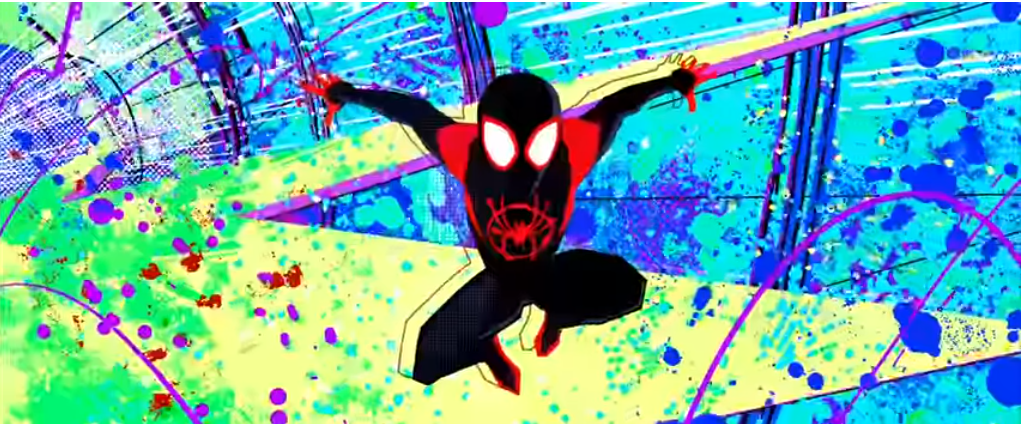
Much like redemption, validation is at its most powerful when it comes from within oneself. The people who truly love us want nothing more than to see us succeed, for our own sake and on our own terms. They want to believe in us. Here’s the thing: if we can’t believe in ourselves, how can we expect others to believe in us? If we don’t respect ourselves, why would anyone else respect us? It begins within ourselves. It’s not something that’s touched on often in the media that permeates our society. There are tons of businesses who will be more than happy to sell you something in the name of fulfilling a need within yourself. It’s an easier solution to reach for. To try and find these things on your own, to eschew the expectations of the world, is considered an abnormality. There’s something about it that can, and often does, feel dangerous.
With everything that’s happened, and everything I’m learning, I’ve come to believe that choosing and working become one’s best self is a difficult thing, sometimes even a frightening thing. Your success and failure is entirely on you. If you’re detached from reliance upon and validation from others, you run the risk of either buying too much of your own hype or focusing overmuch on minor setbacks as evidence that you can’t make your own way. Again, this will vary from person to person, but that seems to me to be the nature of the challenge, the flavor of the danger. And it’s understandable to be afraid. But just like deciding to seek your best self, you can also decide how you handle that fear. I used to let it make the decisions for me; now, I can acknowledge it exists, see it for what it is, and then find it within myself to make my decisions on my own terms.
In other words: being one’s best self is often a matter of stepping out under one’s own power, seeing the challenges ahead, choosing to show the fuck up anyway, and saying:
What’s up, danger?

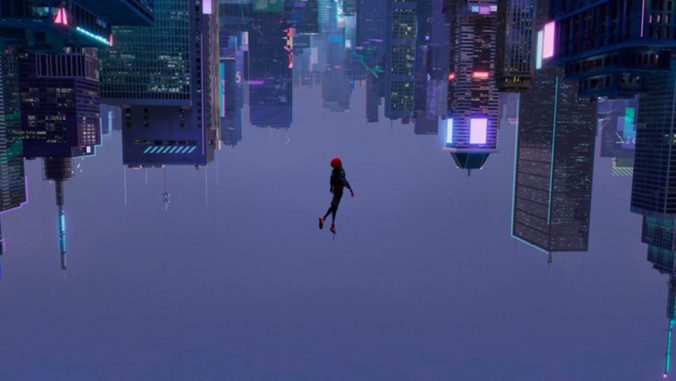


June 10, 2019 at 7:04 pm
I am so proud of how far you’ve come, and the fact that you’re writing more regularly, again. Keep it up, WizardFriend. 🌈